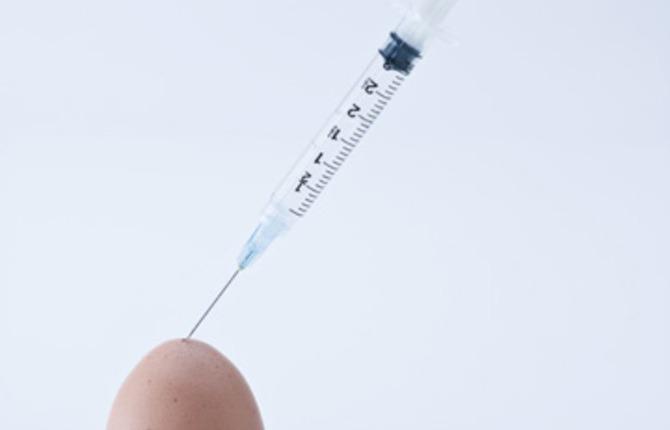
Understanding egg health
By Dr. Marjorie E. Dixon
Infertility is common and on the rise in Canada, doubling in prevalence since the 1980s to affect about 16 per cent of couples. The standard treatment for infertility is in vitro fertilization, or IVF. While IVF has helped bring more than five million babies into the world, it does have limitations – the major one being that it cannot affect the health of a woman’s eggs, which is vital for a successful pregnancy. IVF takes a woman’s eggs and combines them with her partner’s or a donor’s sperm, but it does not have any impact on the quality of the eggs. If the eggs aren’t healthy, which accounts for a large proportion of female infertility cases, the chance of IVF success goes down dramatically.
A diagnosis of poor egg health will often come after the woman undergoes her first round of IVF since that is the first time her eggs are actually assessed. Patients often ask me about poor egg health, and what can be done to improve it. Here is what I tell them:
1. Poor egg health can
happen to anyone
Poor egg health is seen in women of advanced maternal age, but also in younger women due to environmental (e.g., smoking, exposure to toxins) or medical (e.g., type 2 diabetes) factors. It can also be completely unexplained. Research shows that the health of an egg depends in part on the amount and health of the mitochondria that exist within the egg cell.
2. Maintaining a healthy lifestyle will increase your chance of a healthy pregnancy
Fertility rates are lower in women that are overweight or significantly underweight. A body mass index (BMI) of 18-24.9 is normal. Exercise is an important part of a healthy lifestyle; however, excessive amounts of exercise can also be harmful by preventing ovulation. Although there is no evidence that any specific diet improves fertility, a healthy diet is important for pre-conceptual care and weight management.
3. Getting regular health check-ups can alert you to underlying conditions that may affect egg health
It is important for a woman’s overall health to see a doctor regularly for physicals and to address any changes in health. Additionally, there are some known medical conditions that can affect egg health for which a doctor can test. For example, polycystic ovary syndrome, or PCOS, in which a woman’s hormones are out of balance due to small cysts growing on her ovaries, can affect egg quality. The more information known about a woman’s reproductive health, the better chance she has to get the appropriate advice and treatment.
4. New advances in science
and technology can help
improve egg health
in conjunction with new embryological technologies which can assist in embryo selection (time-lapse camera incubators and preimplantation genetic screening), Canada is one of a few select countries in the world where women have access to a new fertility treatment specifically designed to improve egg health. Called AUGMENT, the treatment uses the mitochondria from a woman’s immature egg cells to supplement the energy in her mature eggs during the IVF procedure. This treatment can bring new hope to women who have egg health issues, and it has already resulted in healthy births here in Canada and abroad.
Marjorie Dixon, M.D., F.R.C.S.C., F.A.C.O.G., is an experienced Reproductive Endocrinology and Infertility Specialist. Dr. Dixon is also the co-founder and Medical Director of First Steps Fertility, a fertility clinic located in Toronto that has been open since February 2008.





